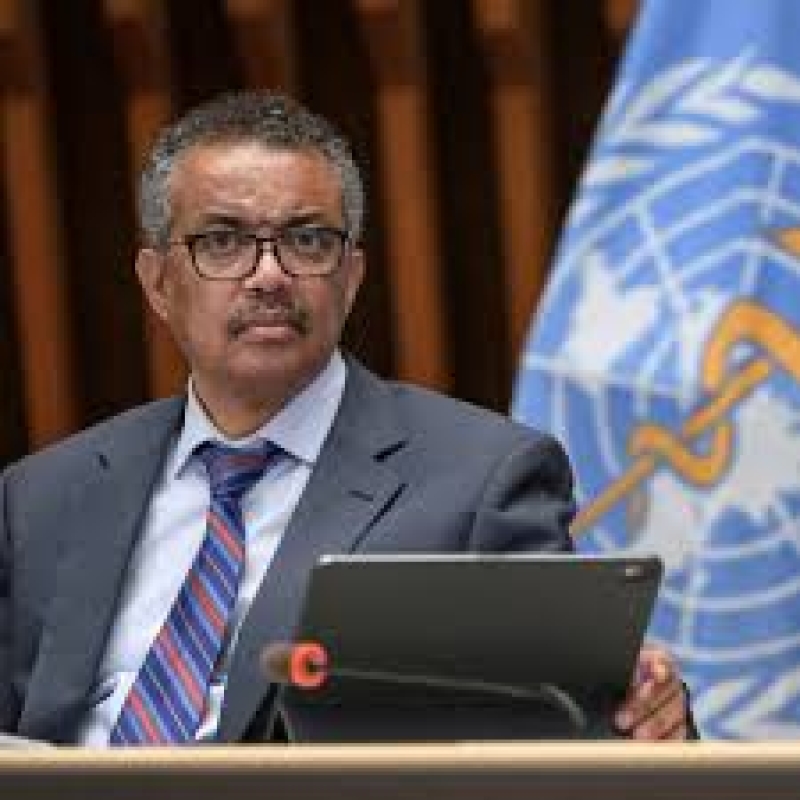- UN Chief Urges Action to Halt Mideast Escalation |
- Top Iranian Commanders Killed as Tensions Escalate |
- Multiple Arab states that host US assets targeted in Iran retaliation |
- Dhaka’s air quality 3rd worst in the world Sunday morning |
- Iran names 3-men body to cover transition as Khamenei’s dead |
WHO Chief Urges Nations to Convince U.S. to Rejoin Health Body

The World Health Organization (WHO) Director-General, Tedros Adhanom Ghebreyesus, has called on nations worldwide to press the United States to reconsider its decision to withdraw from the international health body. He warned that the U.S. could jeopardize its access to critical disease outbreak data, which could have dire consequences for global health security.
In a closed-door meeting with diplomats last week, WHO officials discussed the severe financial and operational implications of losing the U.S. as its largest donor. At a crucial budget meeting on Wednesday, German envoy Bjorn Kummel described the situation as an urgent crisis, stating, “The roof is on fire, and we must act immediately to put it out.”
For the 2024-2025 period, the U.S. was set to contribute around $988 million—roughly 14% of WHO's $6.9 billion budget. A budget report revealed that WHO’s emergency health programs, including efforts to combat polio and HIV, rely heavily on U.S. funding. Other critical initiatives, such as tuberculosis control in Europe, Africa, and the Western Pacific, could also be severely impacted.
WHO finance director George Kyriacou warned that without significant changes to its funding, the organization could face serious cash flow issues by early 2026. Despite attempts to claim outstanding U.S. funds, Washington has not settled its dues for 2024, exacerbating WHO’s financial challenges.
Tedros Appeals for U.S. Return
Since the U.S. announced its withdrawal, the Centers for Disease Control and Prevention (CDC) has been instructed to cease collaboration with WHO. However, Director-General Tedros assured that the agency is still providing U.S. scientists with some essential data, although he did not specify which information was being shared. "We continue to give them information because they need it," Tedros said, urging other countries to encourage the U.S. to reverse its decision. WHO is currently dealing with health emergencies such as the Marburg virus outbreak in Tanzania, Ebola in Uganda, and mpox in Congo.
Tedros dismissed former President Donald Trump’s rationale for exiting, which criticized WHO's handling of the COVID-19 pandemic and alleged mismanagement. He emphasized that WHO had issued early warnings about COVID-19 in 2020 and had implemented significant reforms, including diversifying its funding sources. Tedros suggested the U.S. withdrawal was not primarily about finances but about the critical health intelligence the U.S. risks losing.
“Bringing the U.S. back will be crucial,” Tedros asserted, adding that the global community must play a role in facilitating this change.
Global Reactions and Growing Concerns
Kummel, a senior German health official, described the U.S. departure as "WHO’s most severe crisis in decades." Representatives from Bangladesh and France pushed WHO for details on how it plans to manage the funding shortfall and which programs might be most affected.
Internal WHO documents obtained by the Associated Press indicate that the organization is considering significant budget cuts, with some departments potentially facing reductions of up to 50% by year’s end.
WHO declined to comment on whether Tedros had privately urged countries to advocate on its behalf.
Experts Warn of Broader Implications
Experts caution that while the U.S. exit is a significant setback, it also presents an opportunity to reassess global public health financing. Matthew Kavanagh, director of Georgetown University’s Center for Global Health Policy and Politics, noted that the U.S. contributes less than 1% of its health budget to WHO but benefits from vital resources, such as disease outbreak intelligence and access to virus samples for vaccine development.
Dr. Michael Ryan, WHO’s emergencies chief, acknowledged the gravity of the situation, calling the U.S. departure “terrible” but stressed that member nations have the capacity to help fill the funding gap.
Ryan remarked, “The U.S. is leaving a community of nations. It’s essentially breaking up with you.”
Kavanagh expressed doubt that the U.S. could replicate WHO’s extensive global disease monitoring efforts and warned that the withdrawal could ultimately lead to poorer health outcomes for Americans.
“The full impact remains to be seen,” he said.

